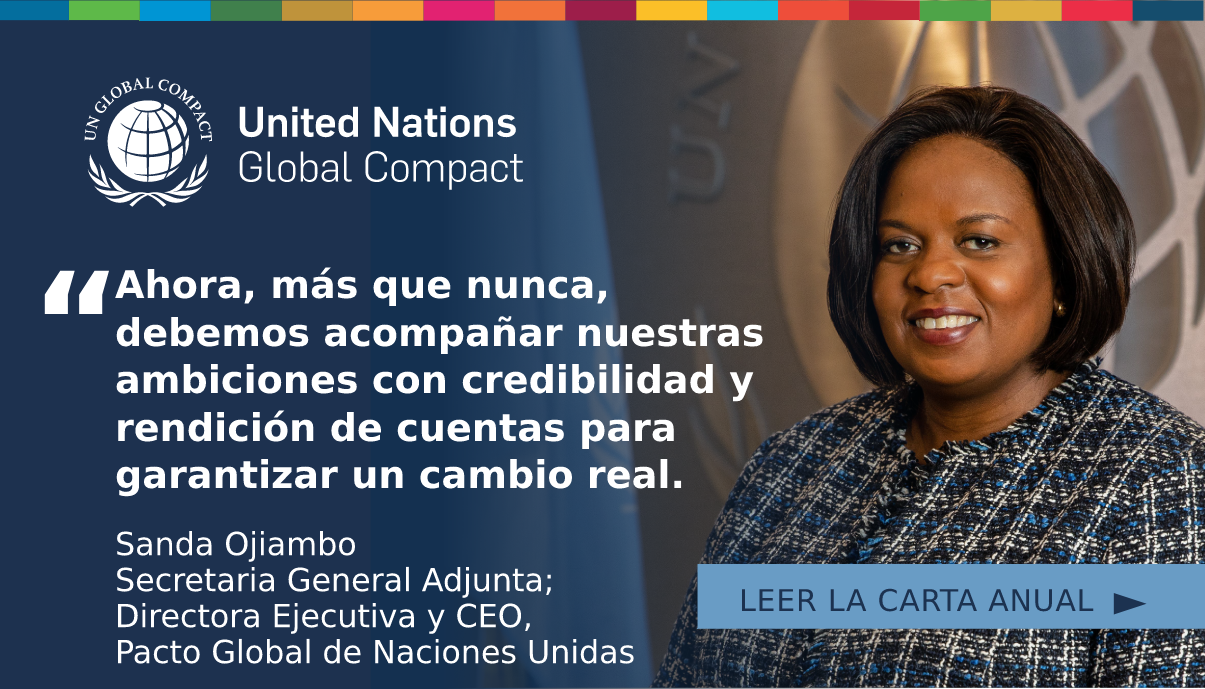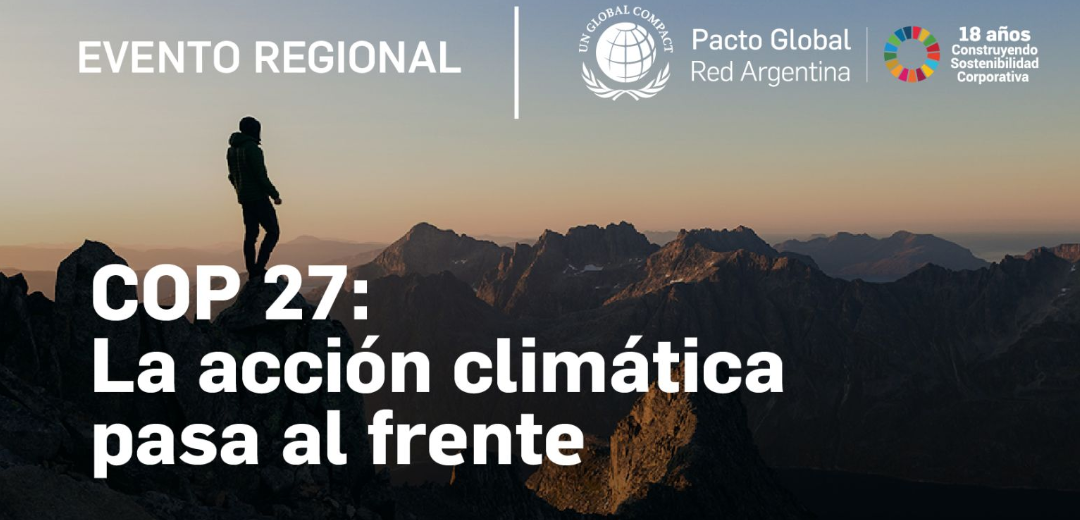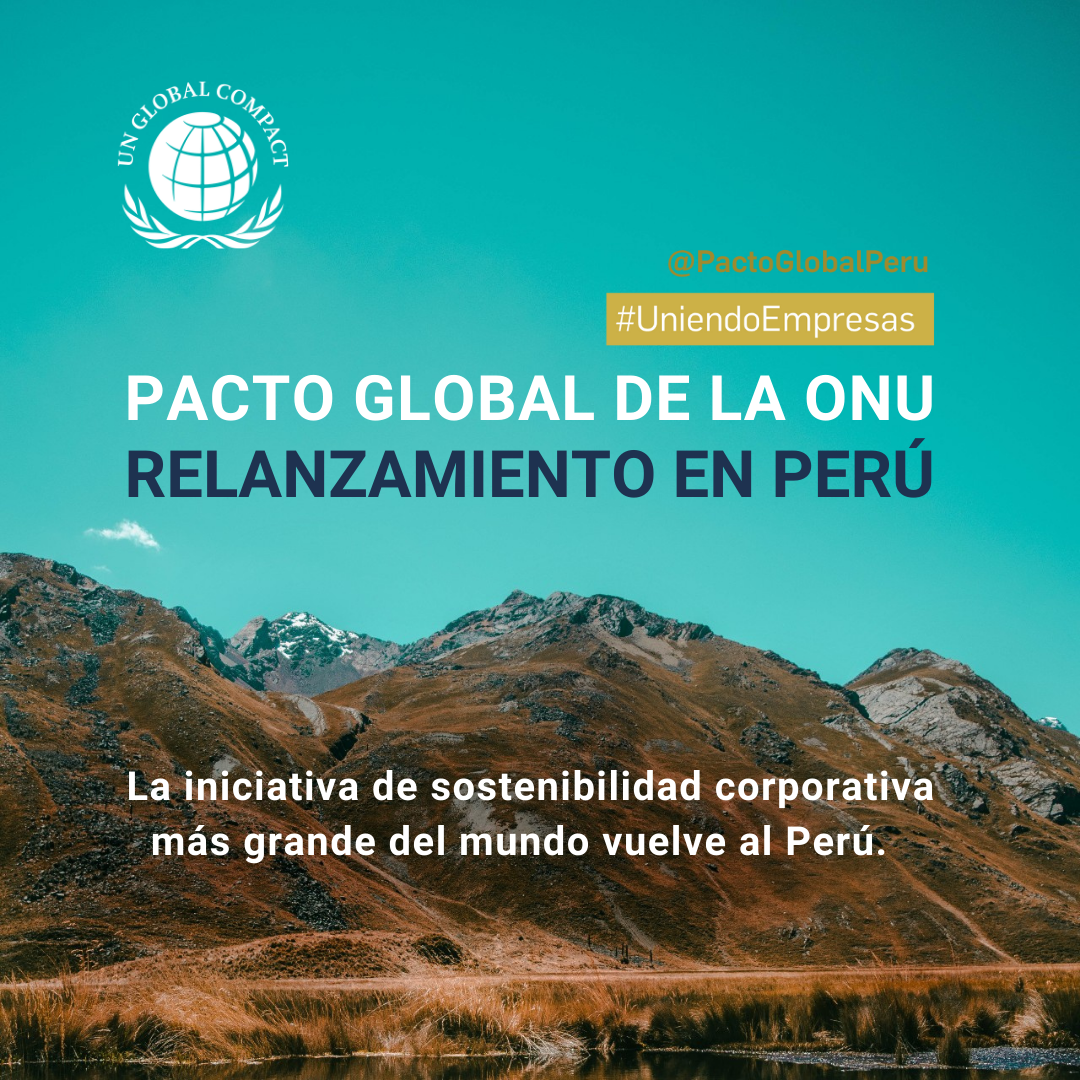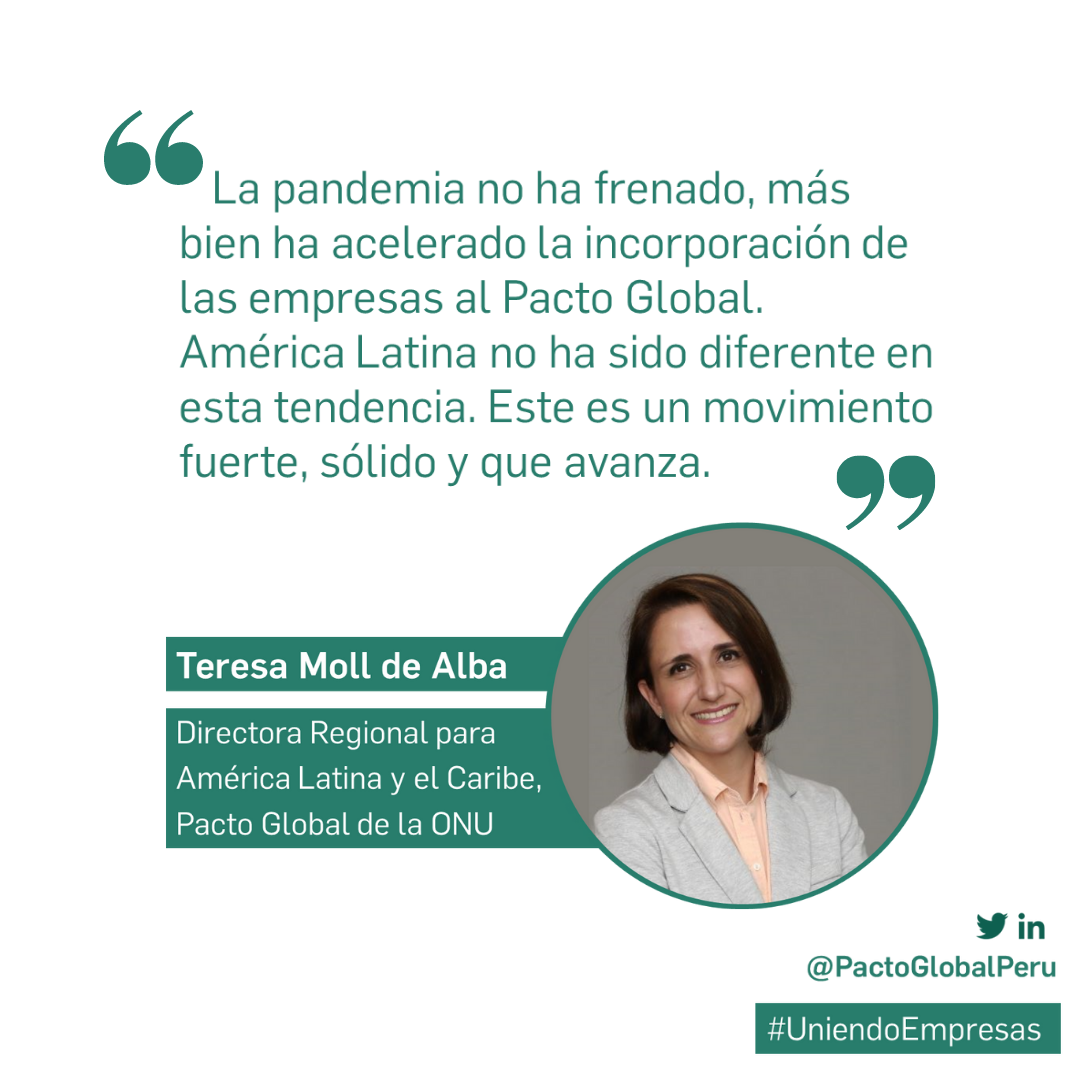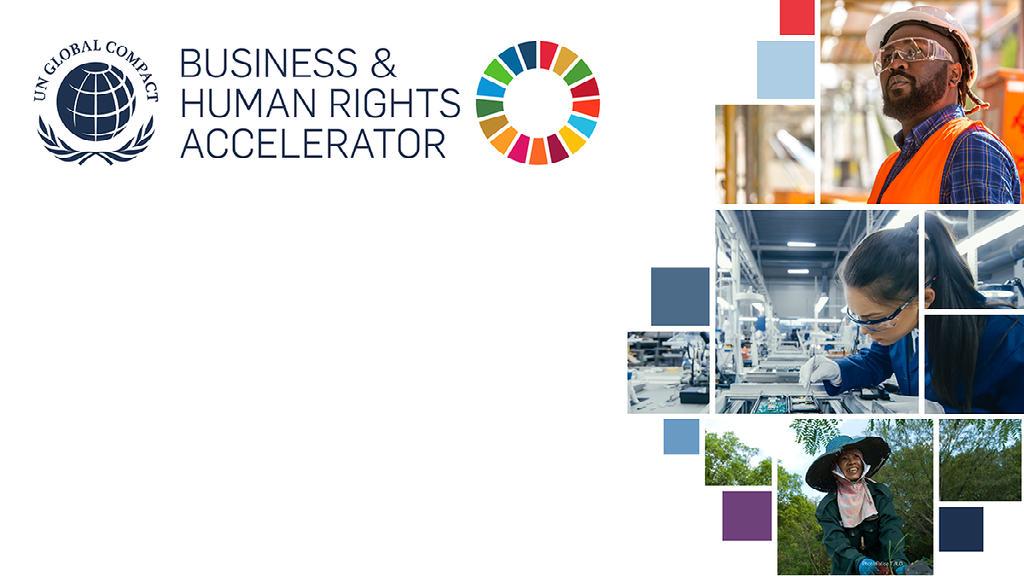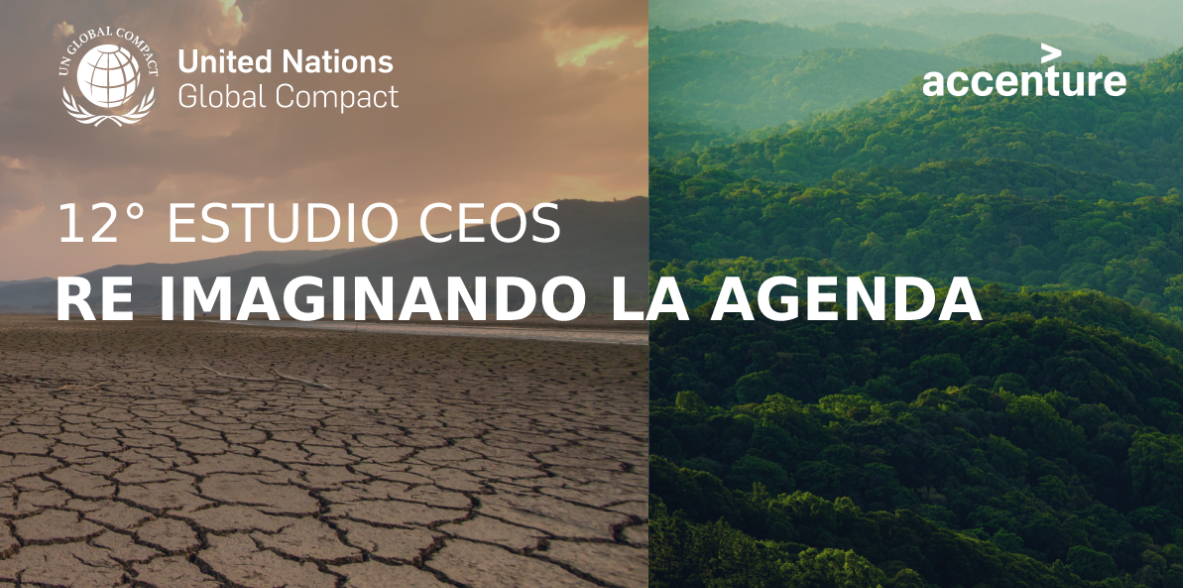The Global Compact presents its business sustainability route in Peru.
The world's largest sustainability initiative is committed to integrating climate action and human rights into business strategies.
Faced with a call for urgency and immediate action, the United Nations, through its business sustainability initiative - Global Compact - has presented its value proposal for Peru on May 25, 2022. The proposal includes accompanying companies of all sizes and at the national level to incorporate climate action and human rights into their corporate sustainability strategies, following compliance with Ten Principles framed in human rights, labor standards, environment and anti-corruption.
For Sanda Ojiambo, Deputy Secretary General and CEO of the UN Global Compact, "now more than ever, as the climate crisis intensifies faster than experts had predicted, the world faces great challenges that put us in danger to all. We must act quickly. Our future, our very existence, depends on achieving and maintaining a delicate balance between the environment and our own human consumption.”
Igor Garafulic, Resident Coordinator of the United Nations System in Peru, stressed that "we need to add more companies and leaders to strengthen this new vision of the country and of the future with inclusion, protecting human rights, in a green economy, with transparency and with full respect for the institutional framework and the rule of law" in order to follow the roadmap set by the 2030 Agenda and its Sustainable Development Goals (SDGs) and solve the country challenges that have been identified and will be addressed in the Framework of Cooperation
At this time when people from 16 departments of Peru and 15 countries have joined the live broadcast on May 25, 2022, "it is clear that in addition to being the largest sustainability initiative in the world with more than 16 thousand companies participants, the Global Compact represents an academic and practical reference for companies that are interested in innovating and evolving towards a sustainable and responsible way of doing business, inspired by international principles”, indicated Teresa Moll de Alba, Regional Director for Latin America and the Caribbean.
Among its lines of action, Adriana Quirós, Country Manager of the Global Compact Peru, highlighted the work of guiding companies in the respect, promotion and remediation of human rights "in practice", since "it is not possible to be committed to sustainability if a vision of human rights is not incorporated.” Likewise, he highlighted climate action, emphasizing that "the private sector has a key role in sending strong signals to the market, developing innovative solutions and presenting concrete and realistic plans towards a zero carbon economy, while generating a fair recovery." and inclusive.”
Within the framework of business experiences, representatives of Perfecta Automotores and Schneider Electric, leading companies in their fields in the region, and Semana Económica, accompanied the panel, who left very valuable conclusions to the participants, highlighting the following:
1. Sustainability must be incorporated into all areas of business. "Suddenly we see how finance also acquires a role in sustainability, how regulation becomes more active in different latitudes of the world and we can foresee that in Peru they will also begin to add in the same direction." – David Reyes, Director of Economic Week.
2. – Sustainability is the only way to do business. “Since 2005 we have a series of sustainability goals and indicators that are public, such as the Schneider Sustainability Impact that we monitor every month and is included in the top management incentives. This is an example of how seriously we include sustainability. It's the only way to do business. If it's good for the planet, it's good for business. They are two themes that complement each other 100%.” Gustavo Jaramillo, General Manager for Peru and Bolivia of Schneider Electric.
3. – Culture is essential to incorporate sustainability internally and externally. “The industry has had to revolutionize all its production and product concepts, putting the person at the center. This has forced us as a company to change the culture and to understand that all our processes and the business strategy have to be based on and adapt to sustainable development. It is there that we embrace the Ten Principles of the Global Compact.” Liz María Ramírez, General Manager of Perfecta Automotores (BMW Paraguay).

